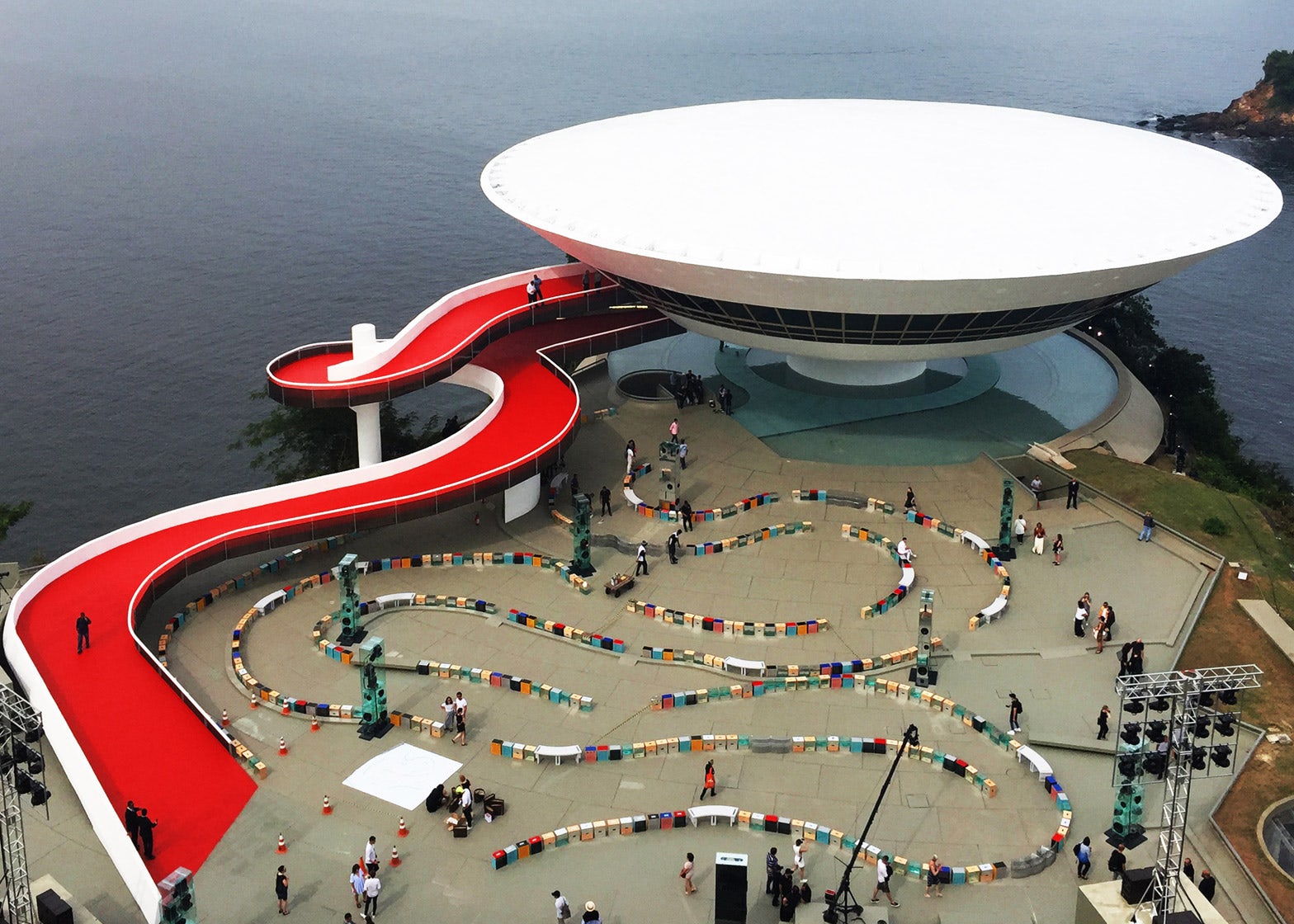High fashion is all about aspirational fantasy. Flicking through Vogue, one cannot help but imagine the fabulous lives implied by the photo-spreads. The clothing is just one dimension of the idea of glamour, which is the real product on display. And for the fantasy to be sustained, the idea needs to seem just a little detached from reality.

It is fitting, then, that Louis Vuitton picked a locale of unreal magnificence for its readymade Cruise Collection catwalk show earlier this year. Niterói Contemporary Art Museum (Museu de Arte Contemporânea de Niterói)is indeed a real place, but the sinuous building’s seafront location — from which the city of Rio de Janeiro is often barely visible through clouds of rising mist — has an air of fantasy commensurate with the aspirations of fashion.

The catwalk itself — a modification of the building’s twisting access ramp— was designed by Es Devlin in collaboration with Louis Vuitton creative director Nicolas Ghesquière. The pair’s design emphasizes the existing features of Oscar Niemeyer’s building, a Brazilian landmark that speaks to the utopian ideals of Modernism.
“We conceived an environment in direct response to Niemeyer’s groundbreaking futurist architecture and to the extraordinary urban and natural geography that surrounds it,” said Devlin. “The protagonists of the show treat the Niemeyer museum as an observatory to the future.”

At the event, models walked a course that brought them around the building’s access ramp down to the forecourt, where temporary seating was arranged. The path the models walked reflected the scheme of the building, which in turn was designed by Niemeyer to echo the subtle elevations of the area’s topography.
“The pathways they trace echo its sinuous linear forms and guide our eyes towards the depths of sea- and rock-scape beyond,” said Devlin.

The temporary seating was done in eclectic colors with found materials. This was inspired by designs native to Rio de Janeiro, a city that celebrates the spirit of gambiarra, which means resourcefulness.
“The colored collage that we perceive in Rio’s present is grafted into the 20-year-old retro-future of Niemeyer’s extraordinary sculptural architecture,” said Devlin.

Eclectic seating reflects the Brazilian design principle of gambiarra; via NICHE magazine
The adaption of Niemeyer’s iconic building was actually quite subtle because the access ramp to the museum was already a crimson hue. Devlin simply covered the painted concrete with red textile to make its existing design “pop.”

Niterói Contemporary Art Museum was completed in 1996, when Niemeyer was 89 years old. The Brazilian master passed away in 2012 at the age of 104.
Cover image via Elle; all other images via Dezeen unless otherwise noted




